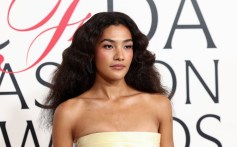Business
Page: 2
Trending on Billboard
The U.S. Supreme Court on Monday (Dec. 1) wrestled with a billion-dollar music piracy lawsuit filed by the major labels against telecom giant Cox Communications, grilling lawyers for both sides over the “extremes” of their arguments.
During a hearing at the nation’s highest court, justices sharply questioned Cox’s lawyer over whether a victory would give the internet service provider (ISP) carte blanche to ignore illegal conduct by its subscribers: “What incentive would you have to do anything if you won?” asked Justice Amy Coney Barrett.
Related
But the justices also interrogated an attorney representing Sony Music Entertainment, Warner Music Group (WMG) and Universal Music Group (UMG), echoing concerns from Cox and free speech advocates that the case could force ISPs to terminate service en masse. “I don’t see how it’s workable at all,” Justice Samuel Alito said.
“We are being put to two extremes here,” said Justice Sonia Sotomayor. “How do we announce a rule that deals with those two extremes?”
UMG, Sony and WMG teamed up to sue Cox in 2018, claiming the internet provider itself should be held legally responsible for enabling the sins of its users. The labels claimed Cox had received hundreds of thousands of notices about piracy, but had never permanently terminated a single subscriber accused of stealing music.
In December 2019, a jury issued a verdict holding Cox liable for helping users infringe more than 10,000 songs, awarding the labels more than $99,000 per song — adding up to a whopping $1 billion fine.
Related
With that case now before the Supreme Court, Cox has argued that a victory for the labels “jeopardizes internet access for millions of users” because ISPs will be forced to terminate users rather than risk billions in legal damages. The labels say such warnings are overblown and designed to distract from the facts of the case: “Cox made a deliberate and egregious decision to elevate its own profits over compliance with the law.”
Arguing for Cox at Monday’s hearing, attorney Joshua Rosencranz said a ruling for the labels would have “cataclysmic” consequences for the internet, and could “wreak havoc with the essential medium through which modern public engages in commerce and speech.”
“There is no surefire way for an ISP to avoid liability,” Rosencranz warned. “The only way it can is to cut off the internet, not just for the accused infringer but for anyone else who happens to use the same connection.”
Rosencranz repeatedly cited recent Supreme Court rulings to support that hands-off approach. One said Twitter did not aid a terrorist attack simply because ISIS used the social media site; another said a foreign government could not sue American gun makers for aiding drug cartels that had used their weapons.
Related
But several justices seemed troubled by that argument. Justice Elena Kagan suggested Cox’s knowledge about specific users was likely more detailed than in the Twitter case. Justice Barrett asked if an ISP would be required to act if it was alerted to child trafficking by its subscribers. Justice Sotomayor repeatedly asked what motive ISPs would have to tackle infringement if the court sides with Cox.
“You know that a particular location is infringing, and most of the time you’re doing nothing,” Sotomayor said. “Why aren’t you contributing to that infringement?”
Representing the labels, attorney Paul D. Clement told the justices that Cox had held copyright law “in contempt. He said it was “beyond dispute” that Cox had provided continued internet access to subscribers that it knew would continue to steal music.
“That reality … is what requires Cox to insist on the extreme position that they can continue to provide service to habitual abusers in perpetuity without consequences,” Clement said. “Why bother cooperating with copyright holders?”
Related
But that argument, too, faced strong scrutiny. Justice Kagan said the labels’ argument “fails” under the recent Twitter and guns rulings. Justice Samuel Alito echoed Cox’s fears about mass terminations, asking Clement how to deal with a college that provides internet to tens of thousands of students. “I really don’t see how your position works in that context,” Alito said.
Though both sides faced difficult questioning, Cox had a powerful ally at Monday’s hearing in the form of the U.S. Solicitor General’s Office, which has urged the justices to overturn the ruling against Cox. At the arguments, Deputy Solicitor General Malcolm Stewart said the labels had simply not met the standard to hold Cox liable — and that the stakes of the case were huge.
“Terminating all access to the internet based on infringement seems extremely overbroad given he centrality of the internet to modern life and given the First Amendment,” Stewart told the justices near the end of his argument.
Following Monday’s hearing, the case is fully ready for a ruling by the Supreme Court. The justices will now deliberate and issue a written ruling in the next few months.
Trending on Billboard
For decades, the live music business has relied on a workforce built on gig labor — workers subject to long stretches away from home without the support found in traditional industries. That’s exactly the gap ECCHO Live — formerly known as Touring Career Workshop — is trying to close. And one of the people helping shape that shift is Chuck Hull, the retired tour manager whose 50-year career spans performers from Elvis Presley to Keith Urban.
Hull, who joined the organization’s expanded advisory board after retiring in 2023, says ECCHO Live is addressing a fundamental truth about the touring economy: “We’re essentially an industry with no real HR department, no safety net, and no guaranteed path for sustainability.”
Related
Last month, ECCHO Live held its largest workshop to date, attracting nearly 500 live event professionals to the Soundcheck Annex in Nashville, including keynote speaker Sarah Trahern, CEO of the Country Music Association. Hull says the large attendance and interest are indicative of an industry in need of support.
ECCHO Live began more than a decade ago as a modest career workshop led by lighting designer and production manager Chris Lyle, who wanted to help newcomers navigate the opaque, freelance-heavy touring world. The early focus was basic but essential, providing guidance in finding work, building a résumé, and handling the financial and personal challenges of life on the road.
One of ECCHO Live’s most influential initiatives is All Access, a first-of-its-kind mental-health program for touring professionals. The program provides four free counseling sessions to anyone working in live entertainment — an initiative that was recently expanded to include spouses. The expansion, Hull says, was an overdue acknowledgment of how touring affects entire families.
“When you’re gone for weeks or months, that stress isn’t just yours — it hits your partner, your kids, your home life,” he explains. “Extending support to spouses was a no-brainer.”
Related
During the pandemic, ECCHO Live saw a surge in demand for mental-wellness support, and those requests didn’t disappear once touring returned. To meet the growing need, the organization launched All Access On-Site, a roaming mental-health tent that appears backstage at major festivals. Crew members can discreetly sign up for same-day sessions with licensed counselors — a resource that was booked solid at many events.
“Festivals started calling us asking if they could get the activation,” Hull says. “That tells you everything about how needed this is.”
ECCHO Live also provides programming that addresses other weak points in touring employment and helps with financial guidance, including retirement planning for workers who rarely have access to 401(k)s. There are also career development workshops for entry-level and mid-career workers and department-specific training for roles in production, audio, lighting, video and crew management.
Hull describes these programs as “the kinds of resources every corporate employee takes for granted — but that simply don’t exist in live entertainment unless we create them ourselves.”
Related
ECCHO Live’s mission is supported by funding from a broad coalition of industry organizations, including the Country Music Association, the Academy of Country Music Awards, record labels, promoters, vendors and other stakeholders who rely on the touring labor pipeline.
Hull’s involvement with ECCHO Live comes after one of the longest continuous careers in modern touring. But while his résumé includes Elvis, Fleetwood Mac, Paul McCartney and a 20-year run managing Keith Urban, he says ECCHO Live isn’t about legacy — it’s about ensuring that the next generation of touring personnel have the resources he never had.
“I spent 50 years without a 401(k), without a health plan, without a safety net,” Hull says. “You survived by hustling. That shouldn’t be the only model we offer the people who keep this business running.”
From his advisory role, he sees ECCHO Live as a responsibility — and an overdue shift in an industry that historically expected workers to tough it out. “The old-school roadie mentality was ‘Bury it, don’t talk about it,’” he says. “But times have changed. People are finally willing to say when they need help. ECCHO Live is creating the space for that.”
Related
With a growing slate of sponsorships and a board that spans touring, vendor ops, production, festivals and corporate live events, ECCHO Live is positioning itself as the first true support network for the touring workforce.
“We’re building structure where there was none,” Hull said. “We’re supporting the people the entire live-entertainment economy is built on. And we’re finally acknowledging that taking care of crews isn’t a luxury — it’s essential.”
Trending on Billboard
WME has promoted Rob Markus to head of international for the agency’s contemporary music team, the company announced Monday (Dec. 1). In his new role, Los Angeles-based Markus will oversee all aspects of WME’s international touring and strategy for contemporary music.
Related
Markus, a senior partner at WME, has worked at the agency for more than 20 years. He helped build the company’s Latin music group, which boasts such stars as Danny Ocean, Gustavo Mioto, Humbe, J Balvin, Juanes, Maluma, Nathy Peluso, Paulo Londra and Pedro Sampaio. His client list also includes A Perfect Circle, Avenged Sevenfold, Depeche Mode, Kygo, Måneskin, Nine Inch Nails, Paul Anka, The Flaming Lips, The Hives, Toto and Will Smith. On the festival front, he’s been key to expanding the Lollapalooza brand into Argentina, Brazil and Chile, which are hosting Lollapalooza festivals in March.
Prior to WME, Markus ran EMI and Virgin Records in Hungary and also set up EMI Music Publishing in Eastern Europe.
“Rob understands the international touring business and its increasing complexities and importance to an artist’s career better than anyone,” said Lucy Dickins, WME’s global head of contemporary music and touring, and Kirk Sommer, global co-head of contemporary music and touring, in a joint statement. “Having lived and worked around the world, Rob possesses a deep knowledge of the nuances of the live music space in Europe, Asia, Latin America, and South America, as well as emerging tour markets like the Middle East, Africa, and India. This expansion of his role fortifies our global music presence and elevates the best-in-class services we offer our clients and partners.”
Added Markus, “I am thrilled to have the opportunity to lead WME’s international music team and look forward to growing and guiding our global roster with the same team approach that has served me well throughout my career.”
Trending on Billboard
The hard hats came off for the first official concert at TD Coliseum in Hamilton, Ontario last Friday night (Nov. 21) — and it started with a bang.
The first show at the former Copps Coliseum and FirstOntario Centre arena since its nearly $300-million transformation by American sports and live entertainment company Oak View Group was one of the most prominent music legends still playing today: Sir Paul McCartney. That’s a big flex for a venue aiming to prove itself as both a relief valve for the red-hot Toronto live music touring market and a destination in its own right, as well as Oak View Group’s new flagship venue in Canada.
Related
McCartney has a discography packed full of some of the most immortal songs of all time from the Beatles to Wings to his solo career, and the multigenerational crowd that packed the sold-out 18,000-capacity venue showed their appreciation by shouting and singing along with every song.
Partway through the set, the 83-year-old artist took an informal poll: “How many of you here are actually from Hamilton?” he asked, before repeating the question asking how many are not. Judging by the cheers, it sounded like 60-40 out-of-towners to Hamiltonians. It’s been nearly 10 years since McCartney last played the city, and he made it count with a marathon 36-song setlist that lasted close to three hours.
The arrival of TD Coliseum may be described as an upgrade of an existing arena, but that tag seriously underplays the significance of what is a genuinely dramatic $300 million transformation of the 18,000-capacity venue.
The ribbon cutting on Nov. 20 was attended by Ontario Premier Doug Ford (taking time out on his birthday), several of his provincial cabinet members, the mayor of Hamilton, Andrea Horwath, and high-level representatives from Oak View Group, the Denver-based international venues giant in charge of the project, and its partners, including TD Bank and Live Nation Canada.
Nick DeLuco, senior vice president and general manager of TD Coliseum, launched the event by recalling that “749 days ago, we were here, talking about a vision, a dream of what this venue was going to become, and now it’s real.”
Read more on the opening McCartney concert here and the opening of TD Coliseum here. — Richard Trapunski and Kerry Doole
—
Macklam Feldman Management Celebrates 30th Anniversary
Macklam Feldman Management (MFM) is celebrating 30 years.
As the Canadian-born international talent agency embarks on its third decade, the company is welcoming new team members and a bevy of emerging talent.
Founded in Vancouver in 1995 by industry titans Stephen Macklam and Sam Feldman, the partnership initially emerged to manage Irish folk band The Chieftains. The success of the group proved their joint prowess — and Macklam Feldman Management was born.
Related
Since then, the management company — a subsidiary of Feldman’s A&F Music Ltd. — has overseen and guided the careers of some of the biggest artists in the world including Joni Mitchell, Norah Jones, Leonard Cohen, Bette Midler, Tracy Chapman and James Taylor alongside a roster that today includes legends Sarah McLachlan, Diana Krall, Elvis Costello, Colin James and more.
“We’ve been fortunate to work with some of the most iconic artists in the world, and this recent momentum marks the most concentrated period of investment in artist development since the company was founded,” Feldman tells Billboard Canada.
While working with icons like McLachlan and Costello, Macklam and Feldman are music industry legends in their own right. (The latter also founded The Feldman Agency, one of Canada’s biggest booking agencies, before selling the namesake company to his executive team in 2019.) Recently, however, MFM has increasingly invested in artist development.
Over the last two years, MFM has expanded its team with four new staff members — Samuel Chadwick, Sam Hughes, Connor Macklam and Wesley Attew — who are dedicated to artist development and digital marketing. They will work with artist managers Scott Oerlemans and Kyle Kubicek to strengthen MFM’s artist development and digital marketing operations for their growing roster.
Over the past year, they have welcomed a new wave of artists, including American singer-songwriter aron!, rock band Tommy Lefroy, U.K. post-punk band YAANG and country singer Dawson Gray. They join 2022 signees, emerging folk-pop trio Tiny Habits, who recently opened for McLachlan on her 30th anniversary Fumbling Towards Ecstasy tour. Each brings a fresh musical perspective and global prospects to the agency.
Read more here. — Heather Taylor-Singh
—
New National Report Calls for Boost to Indigenous Music ‘Discoverability’ in Canada’s Streaming Era
As Canada updates its rules for how streaming platforms support local culture, a key opportunity is emerging to strengthen the visibility of Indigenous music at home and abroad.
The Indigenous Music Office (IMO) has released a new study that sheds light on the challenges affecting Indigenous artists and music companies accessing international markets.
Related
Pathways to International Markets: A Strategy to Increase Export Capacity for Indigenous Music is the music organization’s first major research project. The study establishes four key strategic directions that identify the roles that funders, music industry organizations and partners play in increasing financing, professional development and discoverability for Indigenous artists and industry professionals.
In the study, the IMO highlights that export activities generate significant career development opportunities for Indigenous music artists. However, most funds available to the Canadian music industry lack a strategic focus on assisting the development and export of Indigenous music.
“A strategy to increase the export capacity of the Indigenous music sector is timely as demand for Indigenous music is growing in Canada and around the world,” the report reads.
This includes financing the growth of a domestic Indigenous-owned and led music ecosystem, strengthening export readiness of Indigenous artists, prioritizing international showcasing, touring and networking and promoting discoverability of Indigenous music on streaming and broadcasting platforms.
The study calls for promoting “discoverability of Indigenous music on streaming and broadcasting platforms” as the most specific pathway for Indigenous artists and organizations to reach larger audiences.
In addition to working closely with the CRTC on the implementation of Online Streaming Act, the IMO has assisted in the development of the commission’s new Indigenous Broadcasting Policy, in partnership with First Nations, Métis and Inuit broadcasters, along with Indigenous content creators and audiences.
The study was developed amidst the implementation of the Online Streaming Act, a once-in-a-generation update to CanCon regulations, and ongoing Canadian Radio-television and Telecommunications Commission (CRTC) hearings. In September, various Canadian music orgs voiced their opinions on the changes, one of which highlights the importance of artist discoverability for Indigenous musicians.
An important part of the hearings was last year’s CRTC decision to enforce major foreign-owned streaming services with Canadian revenues over $25 million to pay a now-paused 5% of revenues into Canadian content funds, like the Indigenous Music Office and FACTOR.
Read more here. — HTS
Trending on Billboard
Xposure Music, a Canadian catalog firm focused on mostly independent artists, said on Monday it secured $42.5 million in debt financing from billionaire hedge funder David Tepper‘s Andalusian Credit Partners and private investors.
Xposure co-founders and co-CEOs Ryan Garber and Gregory Walfish said they have signed over 100 deals with independent and some major label artists worth between $10,000 and $4 million since starting Xposure in 2021. Their firm’s total funding now tops $50 million and includes support from equity investors including Garber’s father, former Cirque du Soleil chairman and a minority owner of the Seattle Kraken Mitch Garber.
Related
In recent years, the billions invested by global asset managers and private equity firms to acquire the rights to music’s most popular songs has prompted smaller investors to exploit their specialized genre knowledge and industry connections to acquire music IP in a niche category.
Major funds doing this include Beyond Music, which acquires K-pop and evergreen Asian music catalogs, Cutting Edge Media, which owns media music rights used by the film, TV and wellness industries, and Duetti, which also buys master recordings and publishing rights from independent artists.
“Our goal is to continue to serve as the gateway for emerging artists to access meaningful funding and take their careers to the next level, and this investment gives us the resources to make that possible,” Garber said.
Xposure’s Walfish tells Billboard the initial idea was to create a platform for artists to submit music, pay a fee and be guaranteed that their music would be heard by a record label. While they had early success — signing up nearly 25,000 artists and 200 record label executives — Walfish said it led them to discover that what artists really needed was financing for future projects. Xposure pivoted to catalog acquisitions and other financing options in November 2023. Walfish says Xposure’s acquisition deals with artists are flexible, with Xposure buying entire catalogs of master recordings, publishing rights and writer’s share in perpetuity, or fractions of the artists’ rights to albums or individual songs. Xposure also offers term advances.
“More options for artists are better because they are not forced to take a crazy record deal, and in our underwriting and due diligence, we see some crazy deals,” Walfish says. “Music has become a great asset class recognized by a lot of people, but … this is peoples’ life work that they’re entrusting you with. We want to build relationships with the artists we work with.”
With this new financing, Xposure aims to selectively expand their portfolio holdings and catalogs in new genres like Latin and K-Pop, to further develop their in-house valuation tools, and explore more strategic partnerships, like the one they have with indie distributor Too Lost. That partnership, announced in October, will help accelerate distribution of the catalogs Xposure has rights to and help it acquire new ones, the company has said.
Trending on Billboard
Sphere Entertainment Co. shares jumped 11.2% to $76.04 in the week ended Nov. 28. Despite frequent news reports that tourism in down in Las Vegas, the Sphere venue’s growth has propelled shares of its parent, Sphere Entertainment Co., to a 99.2% gain in 2025.
While no market-moving news was released this week, a steady stream of news has painted a positive picture for the venue. The company announced in October that its remake of The Wizard of Oz surpassed $130 million in sales and more than 1 million tickets. Earlier this month, Sphere announced additional shows in The Eagles residency, bringing the band’s run to a venue record of 56 shows. Earlier this week, Sphere Entertainment Co. announced that Christopher Winters was appointed senior vice president, controller and principal accounting officer.
Related
Music stocks had a rare positive week as the 19-company Billboard Global Music Index (BGMI) gained 1.0% to 2,597.30. With 14 of the index’s companies in positive territory, the slight improvement marked the BGMI’s first gain in 11 weeks. Year-to-date, the index is up 20.5% but is 16.7% below its all-time high of 3,117.20 set during the week ended June 30.
Markets around the globe outpaced music stocks this week. In the U.S., the Nasdaq composite gained 4.9% to 23,365.69 and the S&P 500 rose 3.7% to 6,849.09. The U.K.’s FTSE 100 climbed 1.9% to 9,720.51. South Korea’s KOSPI composite index improved 1.9%, bringing its year-to-date gain to 60.8%. China’s Shanghai Composite Index was up 1.4% to 3,888.60.
The biggest gain of the week came from French music streamer Deezer, which rose 13.5% to 1.09 euros ($1.26). The hefty gain narrowed Deezer’s year-to-date loss to 16.8%. On Tuesday (Nov. 25), Deezer unveiled a new personalization feature that allows users to change to look and layout of the mobile app.
K-pop company SM Entertainment rose 6.0% to 102,000 KRW ($69.50). Reservoir Media increased 4.4% to $7.30. SiriusXM and MSG Entertainment each climbed 3.6%. Spotify, the BGMI’s largest component, gained 2.6% to $583.62.
Three of the BGMI’s largest companies — Warner Music Group, Universal Music Group (UMG) and CTS Eventim — lost ground this week. CTS Eventim fell 0.4% to 84.65 euros ($98.18). On Monday (Nov. 24), Bernstein lowered its CTS Eventim price target to 99.00 euros ($114.83) from 100.00 euros ($115.98) and maintained its “outperform” rating. Universal Music Group fell 2.3% to 22.61 euros ($26.22), increasing its year-to-date loss to 7.7%.
Warner Music Group (WMG) shares fell 8.0% to $30.69. The decline didn’t come from news that WMG settled its lawsuit with generative AI music platform Suno — WMG shares had already fallen 7.6% by the time news of the settlement and corresponding licensing agreement was announced on Tuesday afternoon. Rather, the drop is part of a larger trend in recent months amongst multi-sector companies. In the last nine weeks, WMG has fallen 16.6% and UMG is down 11.6%.
Some K-pop companies have fared even worse. Over nine weeks, SM Entertainment has dropped 14.9%, JYP Entertainment has plummeted 33.6% and YG Entertainment has plummeted 7.5%. HYBE, on the other hand, has gained 12% over nine weeks due to a Korean court ruling that NewJeans must honor its exclusive contract with HYBE imprint ADOR.
ASCAP has named media veteran Marc Zelanko as chief of staff, reporting directly to CEO Elizabeth Matthews. In this newly created role, Zelanko will help drive ASCAP’s mission to grow revenues and improve operational efficiency for its 1.1 million songwriters, composers, and music publishers.
Zelanko brings more than 20 years of experience in business operations and transformation within IP-driven media and entertainment companies. Most recently, he served as senior vice president at Paramount Global (formerly ViacomCBS), where he led strategic initiatives to strengthen operations and streamline processes across global teams. His wins include organizing CEO-level leadership forums, managing the COVID Task Force to maintain operations for 15,000-plus U.S. employees, reducing liabilities through HR process improvements and coordinating the Viacom Marketing Council.
Related
In the aughts, he spent five year at MTV Networks, where he rose to senior vp of business operations and notably helped scale Scratch, a creative consultancy launched by the network.
Earlier in his career, Zelanko worked in the Media & Entertainment Group at Booz Allen Hamilton. He holds a degree from Harvard University and an MBA from Harvard Business School.
Matthews praised Zelanko’s appointment, stating: “Marc is the perfect fit to help ASCAP deliver on our mission to grow revenues and drive efficiencies for the benefit of our more than 1.1 million songwriters, composers and music publishers. He brings a wealth of experience working cross-functionally to lead complex global initiatives, and we are excited to add him to our senior leadership team.”
Zelanko added: “ASCAP has a mindset of innovation and evolution to meet the changing needs of its members and licensees. I look forward to bringing my expertise to ASCAP’s mission in support of improving the future for its songwriters, composers and music publishers.”
This announcement follows ASCAP’s recent hire of John Pershing as Senior Vice President and Chief Technology Officer. Pershing, formerly with What If Media Group, brings extensive experience in IT, product development, and data engineering, further strengthening ASCAP’s leadership team.
Check out a full rundown of this week’s staffing news below.
Anne-Marie Pearce & Chris Barton (PPL)
Image Credit: Courtesy Photo
Trending on Billboard
SYDNEY — Australia’s federal parliament has passed legislation that will enforce content quotas for popular streaming video on-demand platforms.
Earlier this month, the national government announced it would push ahead with quotas, that would require those services with over 1 million domestic subscribers to invest 10% of total program expenditure for Australia, or 7.5% of their total Australian revenue, to support local storytelling.
Now those points become law.
Explore
See latest videos, charts and news
There’s a strong incentive to play by the rules. The Bill provides the Australian Communications and Media Authority (ACMA) with “substantial powers” to determine compliance. Failure to do so would see the streaming businesses face large civil penalties, with fines of up to ten times their annual Australian revenues.
“We have Australian content requirements on free-to-air television and pay television, but until now, there has been no guarantee that we could see our own stories on streaming services,” comments Australia’s arts minister Tony Burke. “Streaming services create extraordinary shows, and this legislation ensures Australian voices are now front and centre. Now, no matter which remote control you’re holding, Australian stories will be at your fingertips.”
With that investment, the likes of Netflix, Disney, Amazon and other SVOD services operating in these parts will be compelled to create more local content, from drama, children’s programming, documentaries, arts programs and educational shows.
“Today marks a watershed moment for Australian storytelling and the music that brings screen stories to life,” reads a statement from Dean Ormston, CEO of APRA AMCOS. “This legislation means local composers will have unprecedented opportunities to contribute to the next era of local screen creation.”
Passing in parliament on Thursday night, Nov. 27, the Communications Legislation Amendment (Australian Content Requirement for Subscription Video On Demand (Streaming) Services) Bill 2025 should create “substantial new opportunities” for Australian screen composers and music creators, according to APRA AMCOS.
Eligible programs must pass the scrutiny of the Australian Content Test Standards (ACTTS), which sets the bar applied to commercial and subscription television services, including post-production in Australia.
Additionally, the legislation has been supported by the Greens and includes an extra A$50 million ($32 million) in funding for the Australian Broadcasting Corporation (ABC) to invest in homemade children’s and drama content.
“Screen music is fundamental to storytelling – it drives emotional connection and defines the cultural fingerprint of Australian productions,” adds Ormston. “The IP developed by our screen composers represents valuable cultural and economic assets that resonate with audiences both here and around the world.”
Screen Producers Australia welcomed the development. “Today is a landmark day for Australian screen storytelling,” remarks SPA CEO Matthew Deaner, nothing the organization’s members had worked “patiently and tirelessly” on the issue for more than 10 years, roughly the time when Netflix switched on. “It finally puts in place a strong starting point for a regulatory framework that responds to the enormous changes that digital streaming platforms have made to our industry dynamics and viewing habits.
Adds Australian Writers’ Guild CEO Claire Pullen: “This is a watershed moment for Australia’s screen industry. This will give our members and the entire creative community more certainty around their careers, and the industry here at home.”
The new rules should’ve been implemented in 2024 but were delayed over concerns on how they might create a stumbling block for Australia’s trade agreement with the United States.
Trending on Billboard
Richard Branson has remembered his late wife Joan Templeman as the “shining star” around which the Branson “family’s universe has always orbited.”
In a pair of posts on Instagram, Branson, the British businessman who founded the Virgin Group and launched scores of recording careers through his labels Virgin Records and V2, said he was “devastated” at the death of Templeman, aged 80.
Related
“Heartbroken to share that Joan, my wife and partner for 50 years, has passed away,” he writes. “She was the most wonderful mum and grandmum our kids and grandkids could have ever wished for. She was my best friend, my rock, my guiding light, my world. Love you forever, Joan.”
The pair married on Necker island in 1989, owned by Branson, and had three children three children — Holly, Sam, and Clare Sarah, who died after four days — and five grandchildren.
In a followup post, Branson writes of her “radiant smile,” her joyfulness, kindness and her nurturing instincts. “Life will never be the same without her. But we have fifty incredible years of memories – years filled with tears and laughter, kindness, and a love that shaped our family more than words could ever capture. It was a relationship that worked. We just had lots of laughs. We were very lucky.”
Branson met his wife back in 1976 at the Manor, Virgin Records’ live-in recording studio. He fell for her “almost from the moment I saw her,” he wrote on his blog in 2020. “Joan was a down-to-earth Scottish lady and I quickly realized she wouldn’t be impressed by my usual antics.”
Templeman was, in his mind, Branson’s better half. “Joan has always been a steady source of wisdom and has played no small part in some of my better life decisions.” It was Templeman who convinced Branson to buy Necker island, for a knockdown price, which he went on to describe as “one of the best decisions I’ve ever made.”
Although the cause of death has yet to be announced, Branson confirms he was by Templeman’s side when she passed “quickly and painlessly”.
Joan’s “light is not gone,” he continues. “It’s just taken on a new shape. It will guide us forward. And we will carry her with us, always.”
Branson is considered one of Britain’s most successful entrepreneurs. He founded the Virgin brand with Nik Powell in the early 1970s, initially with Virgin Records, before expanding into other industries including air travel, record stores, hotels, wines, space tourism and more. He sold Virgin Records to Thorn EMI in 1992 for £560 million ($804 million), and continued to own the Virgin Megastores music retail chain until 2007, when the market for CDs was in a state of collapse.
Branson and Virgin Group returned to the record business in November 1996 with the launch of the indie label V2. Virgin Group sold a chunk in V2 Records to Morgan Stanley in 2002, and disposed its remaining stake to the U.S. investment bank in May 2006. UMG reached an agreement to buy V2 from Morgan Stanley later that year.
Trending on Billboard
Global talent agency Wasserman Music has expanded its flourishing U.K. operation with a trio of new leadership hires across tour marketing, artist services, and artist representation.
The company has enlisted Paul Ryan as senior vice president and agent. Ryan is renowned in the U.K. rock and metal space, having worked across artist management and promotion for scene-leaders Bring Me the Horizon and Architects, among others.
Related
He will continue to work with those acts, alongside Cradle of Filth, Lamb of God, Malevolence and Sleep Token, as well as newly signed names TesseracT and Currents.
Rebecca Laurie joins Wasserman as a manager on the tour marketing team, overseeing domestic and global tour marketing for U.K. agents. Laurie brings over a decade of experience, having spent five years in festival and tour marketing at AEG, as well as stints with UROK and DICE.
Chris Lander has been appointed as vice president within Wasserman’s artist services team. Having held senior roles across podcast production at Global Media, he has contributed to popular U.K. shows including My Therapist Ghosted Me, LuAnna: The Podcast and Take That: This Life.
Lander has also worked in talent development, with a previous roster of leading British comedians and podcast hosts such as James Acaster, Nish Kumar and Deborah Frances-White. His new role will see him identify and execute opportunities for artists in film and television, digital media, gaming, literary, content and IP development, social impact, and more.
Back in September, meanwhile, Wasserman’s Laura Flynn was promoted to a management position on the tour marketing team. She has since worked across successful U.K. arena tour launches for RAYE, Louis Tomlinson, D-Block Europe and The Neighbourhood.
“We’re thrilled to welcome Paul, Chris, and Rebecca to our team, and to have Laura join our tour marketing division,” Alex Hardee, Wasserman Music executive vice president and managing executive, said in a statement.
“Each brings a unique skill set that strengthens our presence in the U.K. and broadens the opportunities we can deliver for our artists. Their passion, experience, and vision will be invaluable as we continue to grow.”

 State Champ Radio
State Champ Radio 









